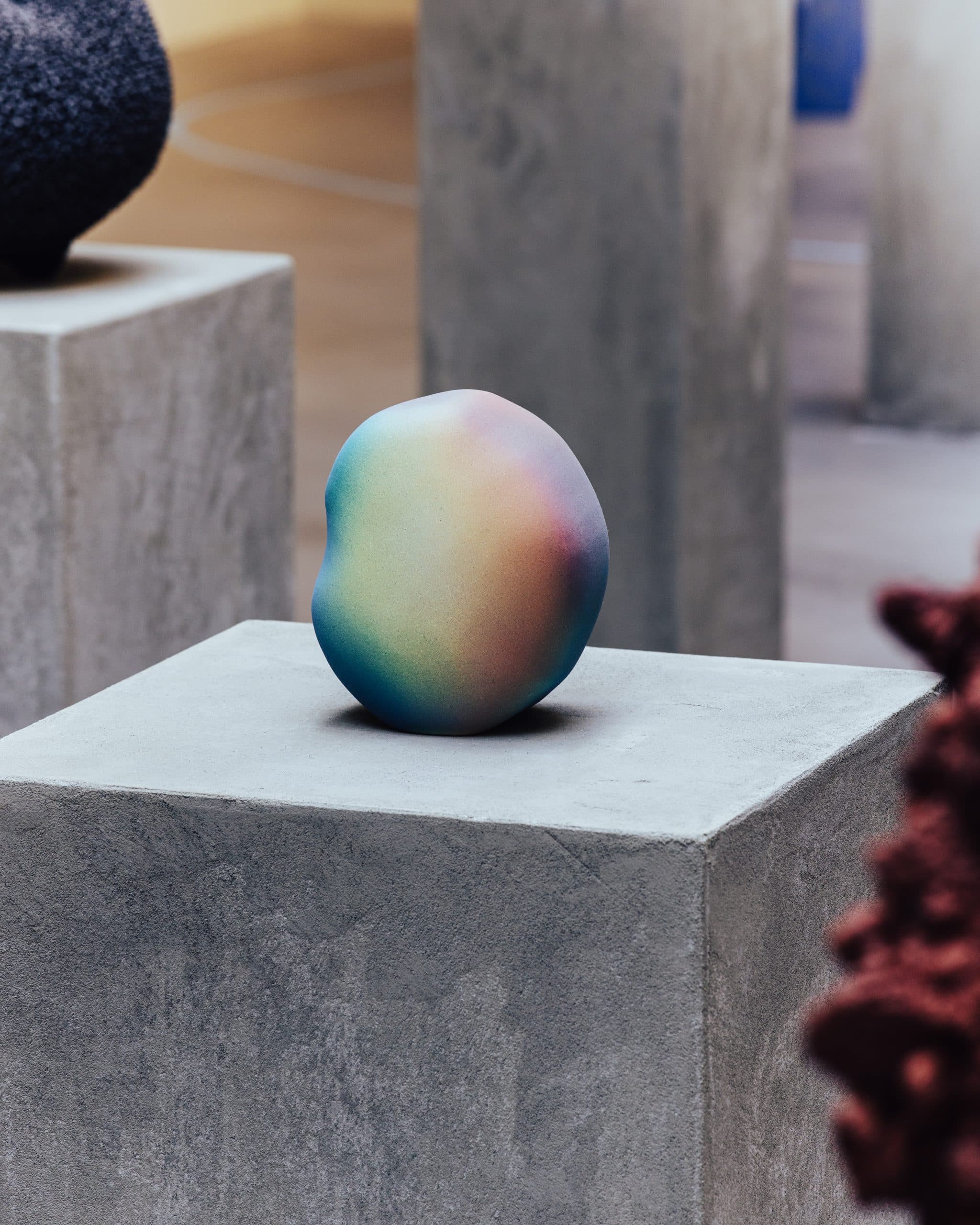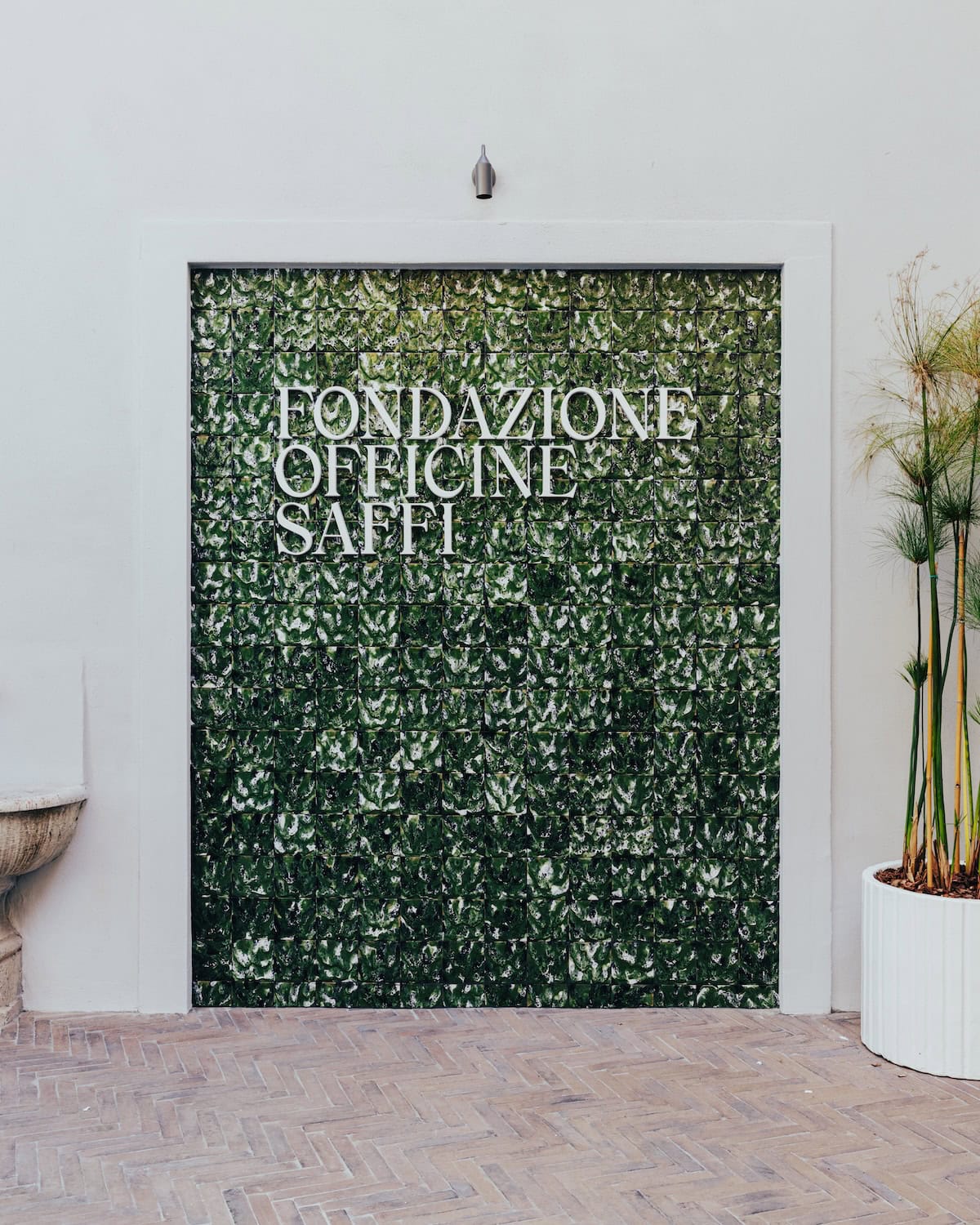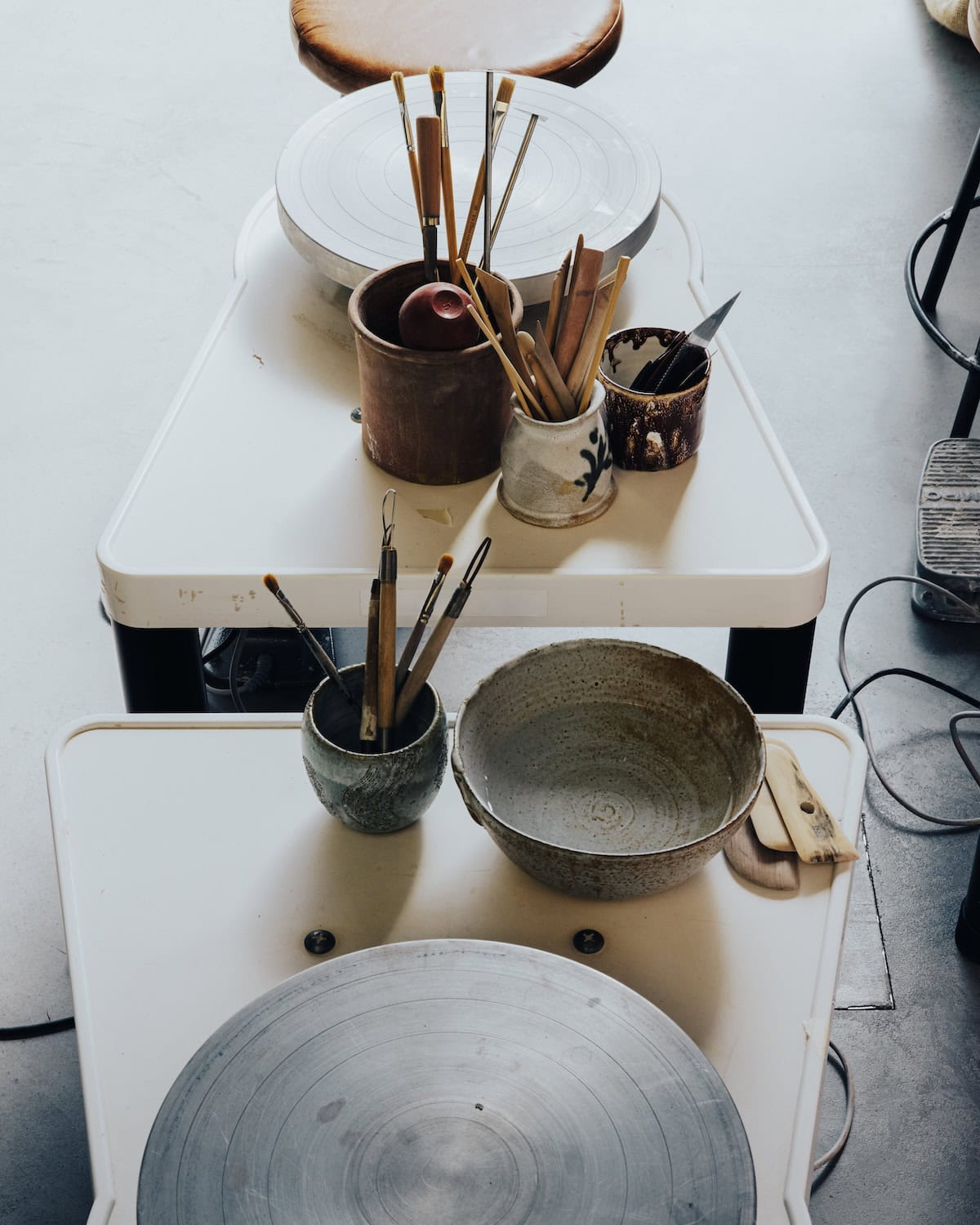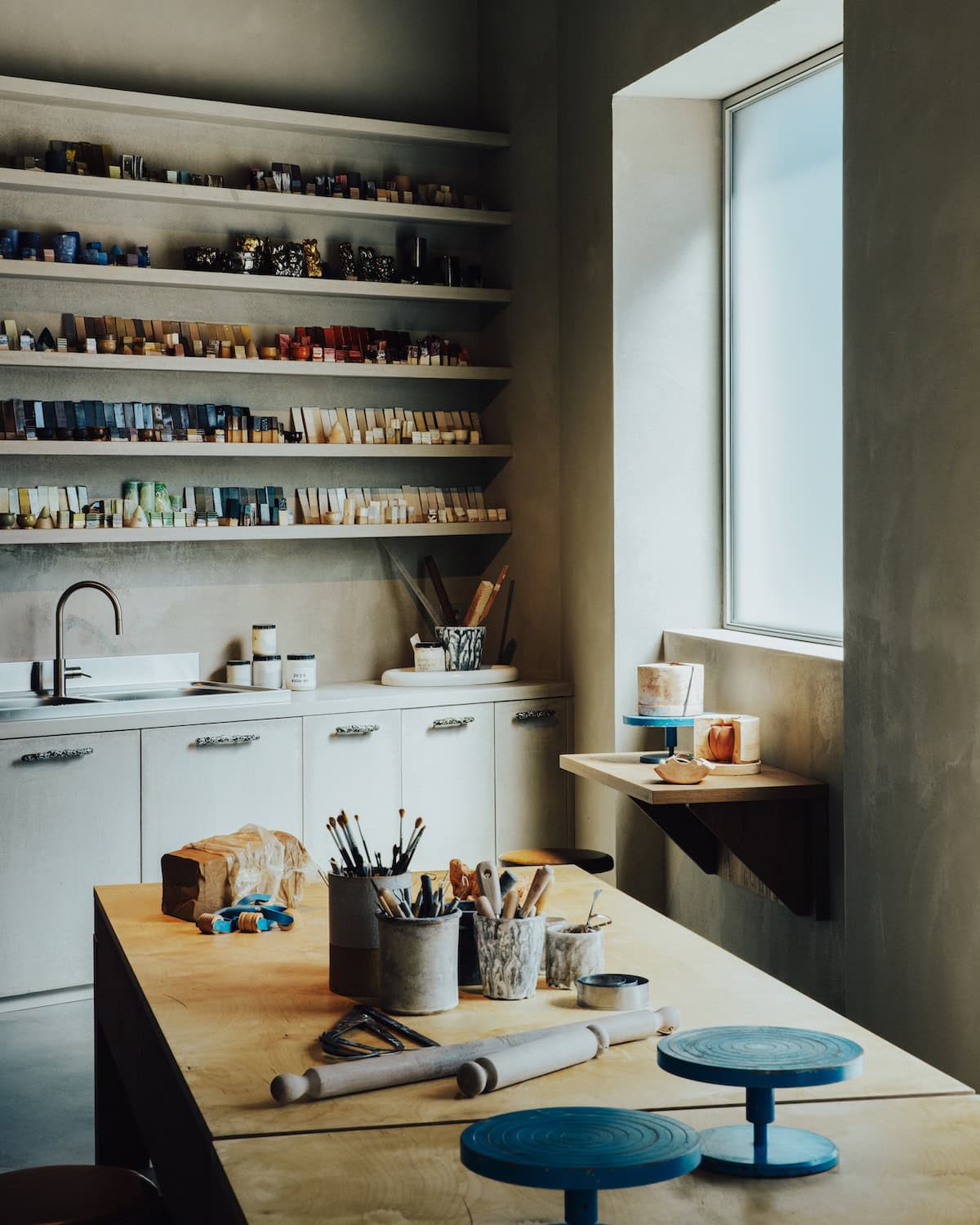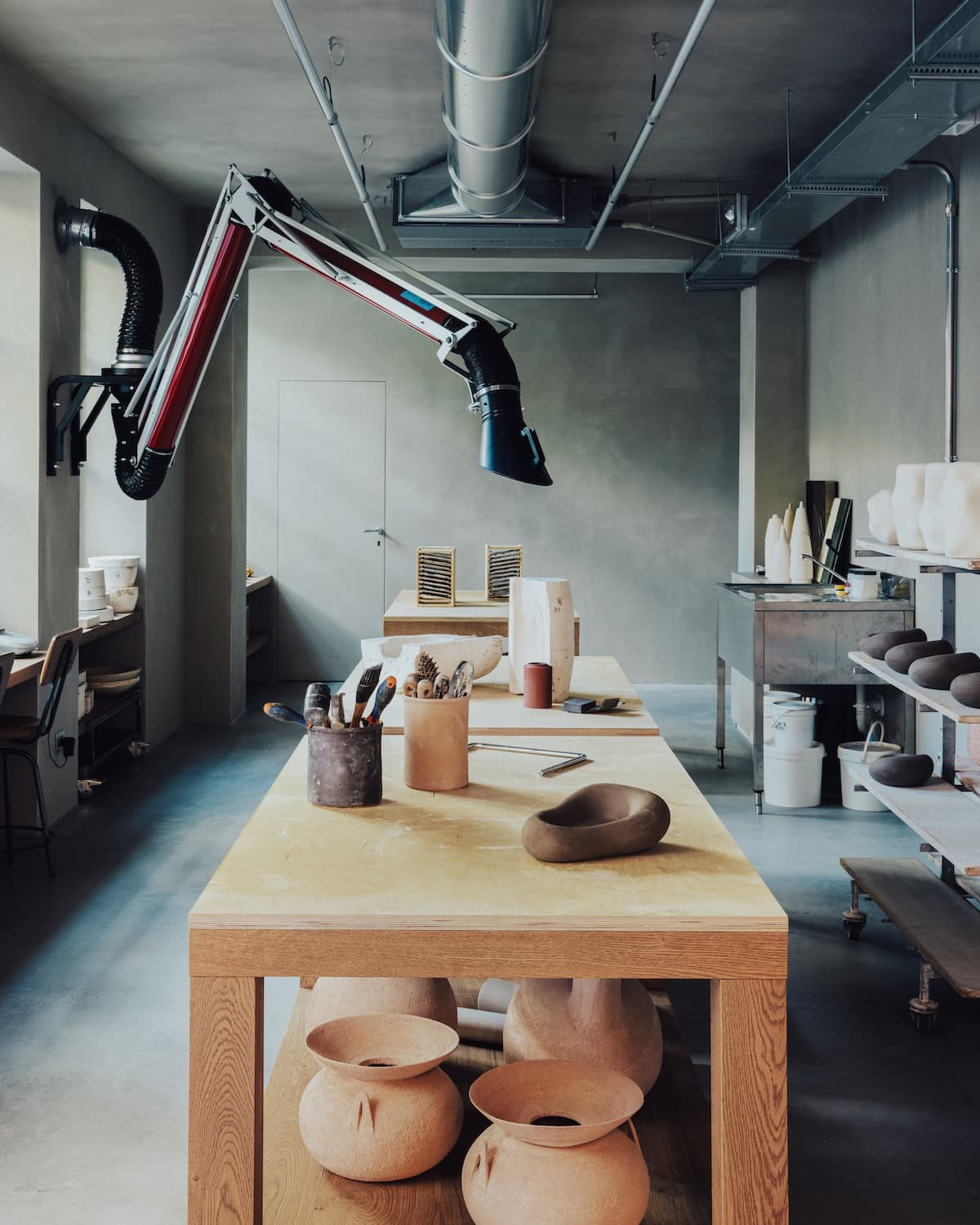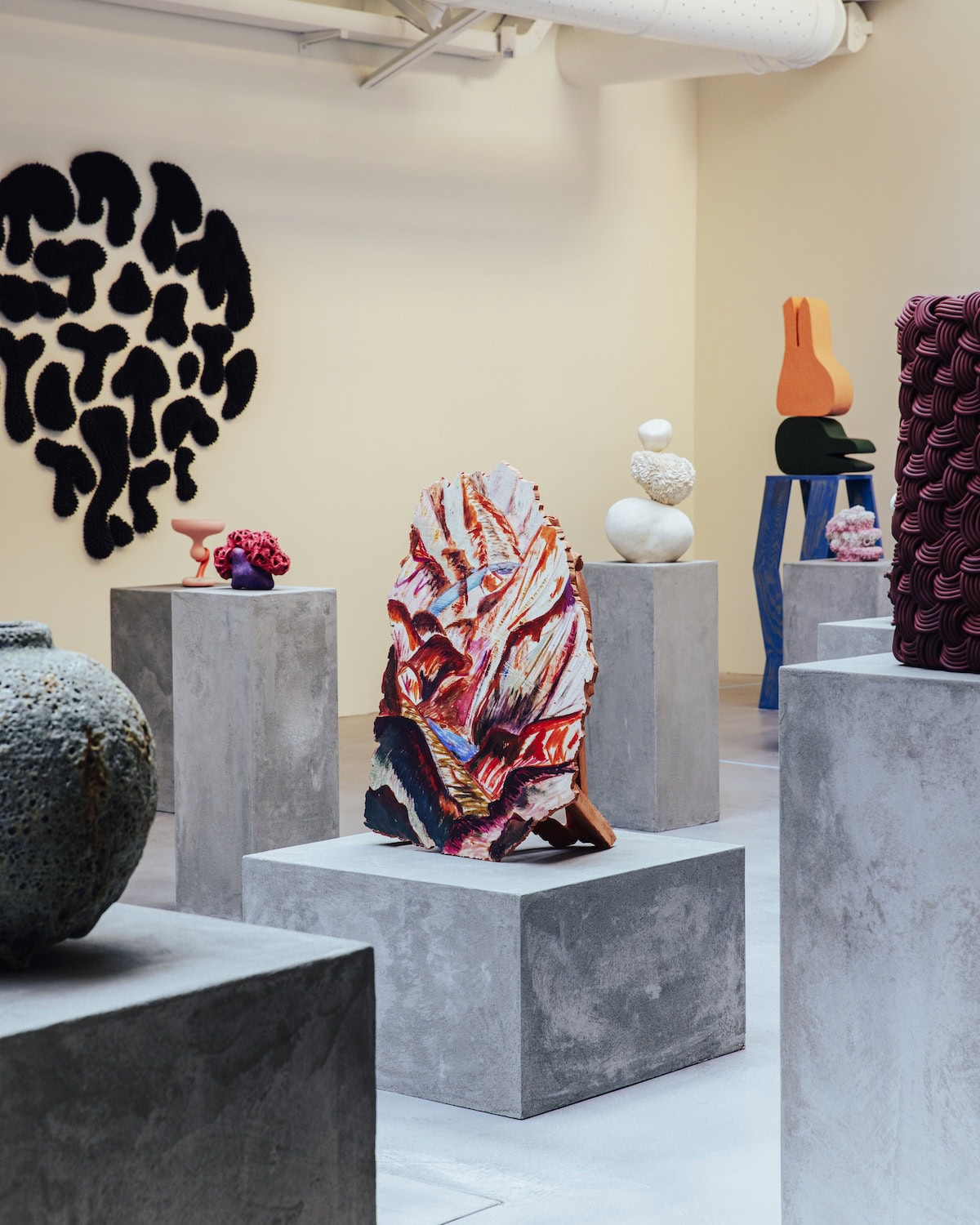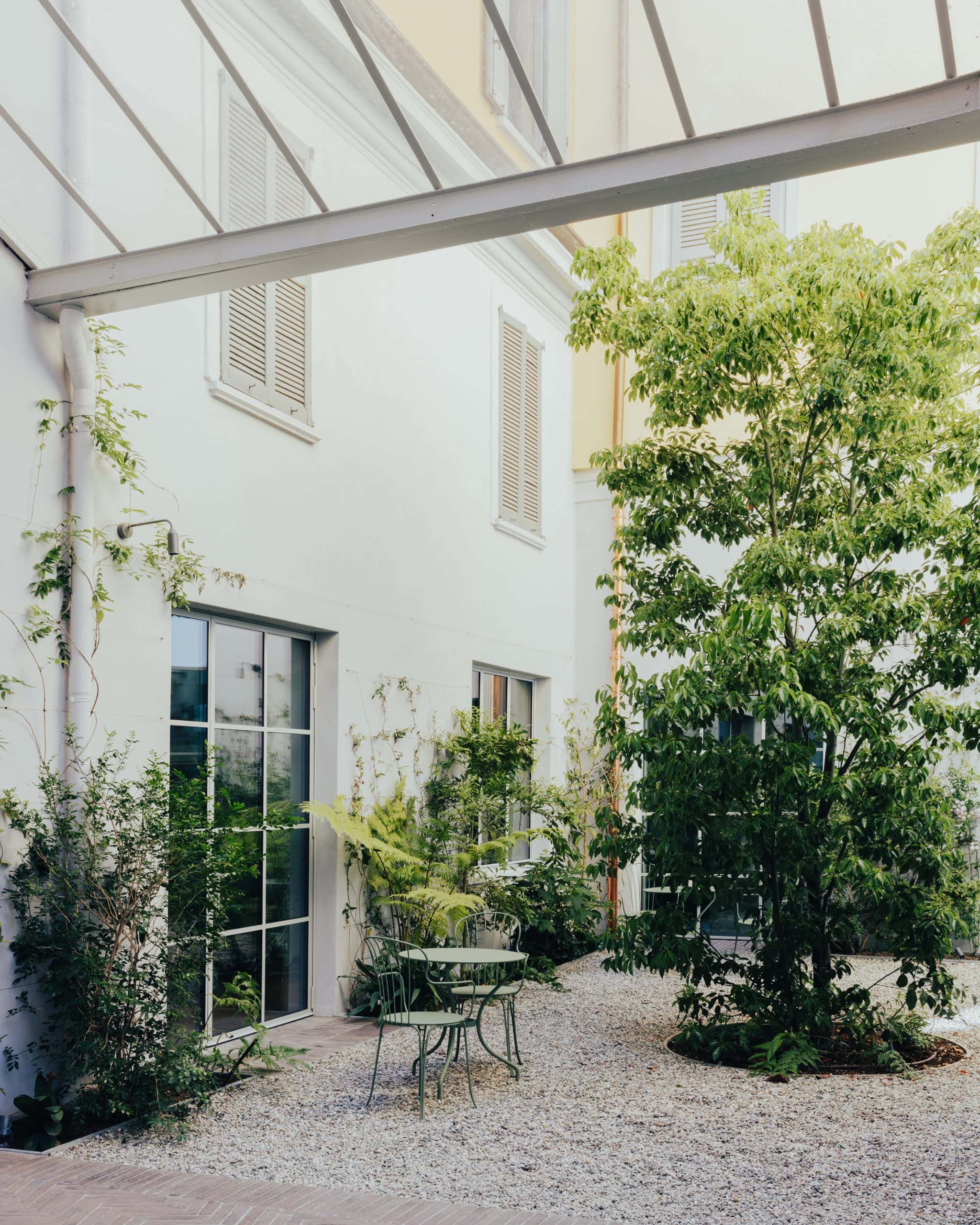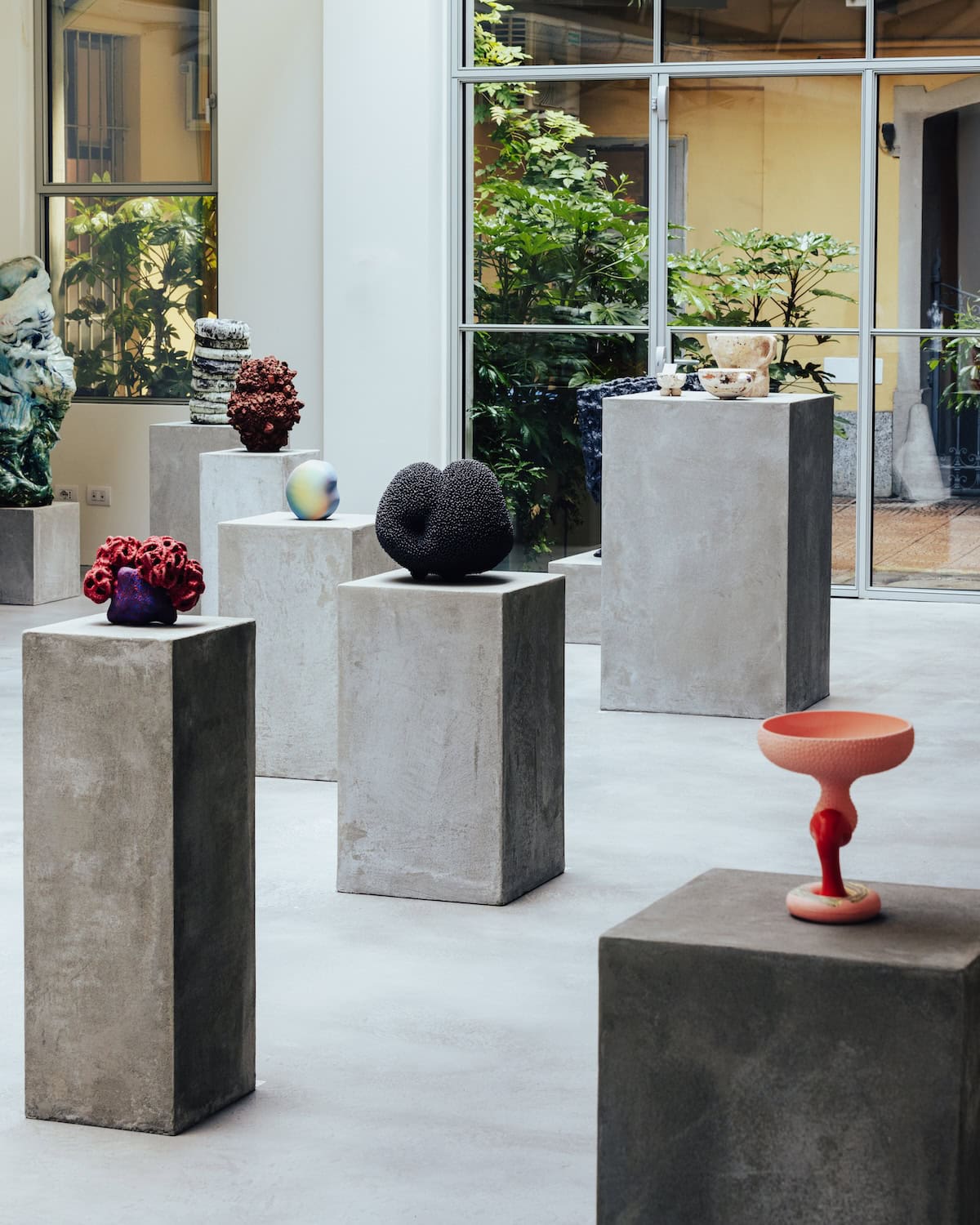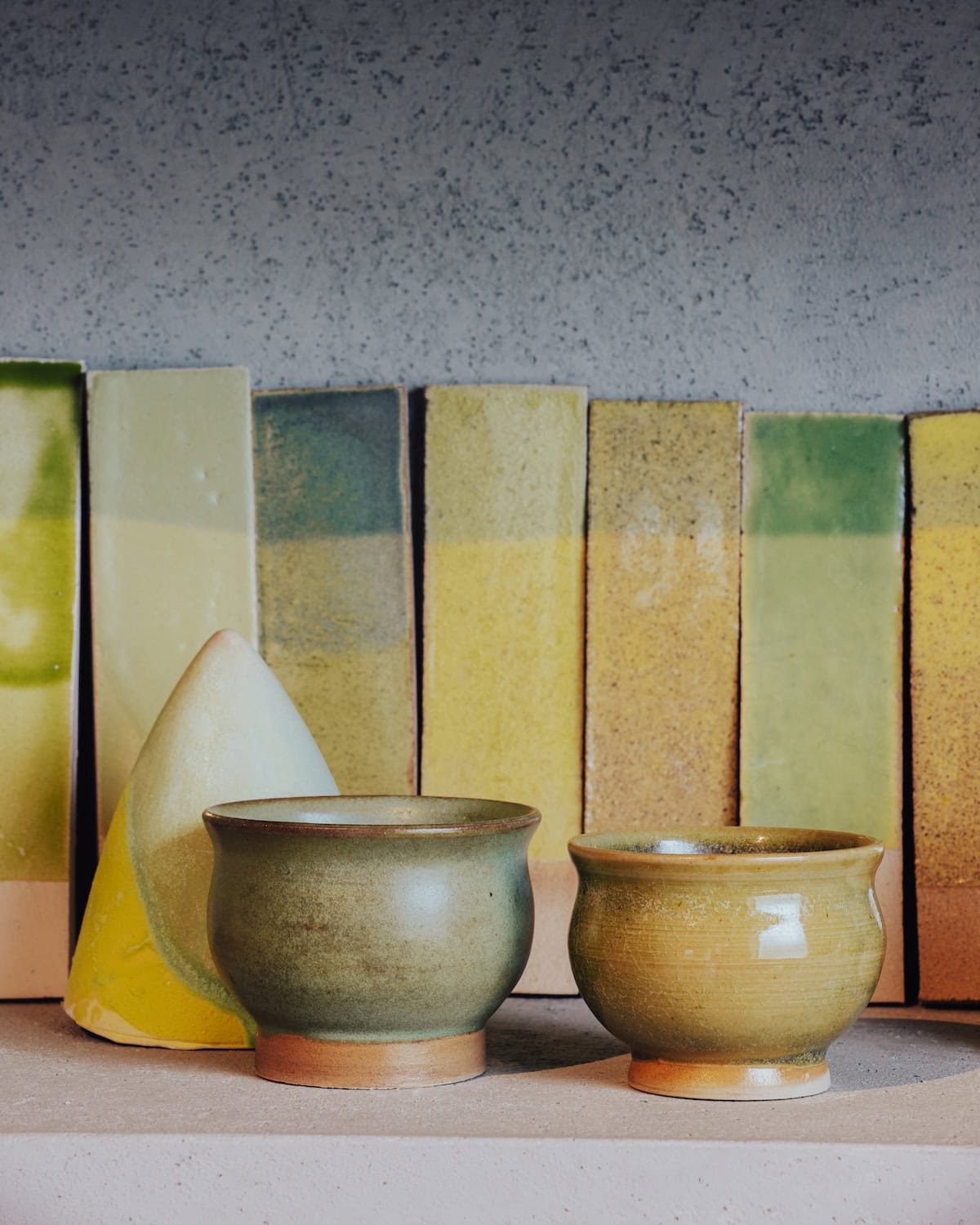On May 29 2024, the renowned institution Fondazione Officine Saffi inaugurates its stunning new Milanese headquarters at Via Niccolini 35a, in the heart of the Sarpi district, with the exhibition (un)Known Territories, showcasing the works of the 32 participants in the Officine Saffi Award V. A new headquarters, a meeting place dedicated to the passionate pursuit of knowledge, research and practical experimentation in contemporary ceramics.
“Ceramic art embodies patience, an endless realm composed of earth, fire, water, and air, where time and devotion turn clay into beauty,” said Carlo Zauli.
Fondazione Officine Saffi is known for its excellence in Milan. Founded by Laura Borghi in 2011, the foundation addresses ceramic in its entirety, serving as a fervent creative laboratory driven by passion, research and the promotion of the material. In the words of the team, it’s a place where “the potential of ceramics is activated as a democratic practice, capable of establishing infinite connections with the complexity of every present. A versatile and powerful medium, capable of narrating local stories and ancient traditions, always recalling the earth, the landscape, our roots”.
A renowned institution of high quality, it has been promoting the artisanal and artistic work of ceramics for nearly 13 years, establishing itself as a reference point in Italy and globally through numerous partnerships and collaborations. Its aims are to promote the horizontal dialogue of the material in contemporary art and design and to function as a platform for exchange between Italy and leading institutions worldwide. The new headquarters at Via Niccolini 35a, in the core of Chinatown, freshly painted and awaiting its first marks, is a welcoming and dynamic space custom-built by Architect Donatella Melchiori in collaboration with Paloma Architectsto host artisanal work, workshops, research and exhibitions. The move from the historic location at Via Saffi (between Cadorna and Conciliazione) was necessitated by increased exhibition space requirements and the need for new, cutting-edge equipment. The vision is to create a true research center for ceramics, a material with an ancient tradition that is experiencing a renaissance and rediscovery in recent years. The previous location’s choice reflected the need to integrate into the urban fabric of a vibrant area amidst the city’s transformations. In the 19th century, Via Saffi location was a printing house, later transformed into a mechanical workshop, hence the decision to retain “officine” in the name. Actively maintaining a productive relationship with both the neighborhood and artists and other workshops is a dynamic intrinsic to the nature of Fondazione Saffi.
The Sarpi area, historically a “working neighbourhood,” enables this openness: the renovated headquarters was, until the late 1800s, an artistic glasswork, and later a nursery school. The glass and iron ceiling from the old activity is preserved: the choice is to return to the world and aesthetics of the original artisanal workshops. Clay, with its millennia-old tradition, stands out from modern digital and industrial techniques, offering an allure due to its physicality, sustainability, and the challenge it presents to be fully controlled by humans.
“We support the flourishing of ceramics as a medium: networking with a series of centers that share our commitment to the value of ceramics and its history. However, we also aim to position ourselves externally as a reference point for a deeper technical, scientific, and cultural understanding, at least within our city”, says François Mellè, General Director. “The courses are designed for everyone, not just artists but also people who approach the technique for leisure time, like planting seeds that can flourish over time. Understanding the value of what one does. We will welcome practices as diverse as possible, not necessarily tied to manual application on the material but also theoretical research”.
The new Officine comprises an exhibition area, a small artist apartment (bedroom, bathroom, kitchen), a courtyard, and an entrance area dedicated to courses and workshops. The bar and central space host the site-specific mural decorative work “Questa stanza non ha più pareti” by Francesco Simeti. The artist digitally samples and extracts decorations from ancient and modern ceramic objects onto ceramic slabs that form the walls of the space, honoring the technique. The Officine Saffi Lab is the true laboratory at the back, with worktables, state-of-the-art kilns, materials, and more.
The Lab is the creative research and production unit of Officine, undertaking custom projects for excellence in design, architecture, and fashion brands. The Lab’s interior design details, such as the handles and tiles in the external courtyard, add to the new headquarters’ charm and thoughtful design. As expressed in the book “Seeing Things” by English artist Alison Britton, also a jury member, displayed at the entrance, “With letting the material everyday shape thought, subvert my house as a place of practice, allow me to recognize and celebrate the intrusion of living into works”.
The (un)Known Territories exhibition showcases artworks by 32 selected artists from the fifth edition of the biennial Award, which has gained significant traction within its target audience and international acclaim. The open call, free of charge, structurally welcomed a diversity of techniques and was open to all, from mid-career artists to newcomers, designers, and ceramists not associated with the art market or galleries. The only requirement: is a focus on material exploration and possibilities of ceramics, innovative production processes, and a diversity of imaginations and languages. The medium itself represents an inherently radical ideological choice: unlike other new materials, ceramics are a concept before they are a material, rooted in ancient human traditions. A new feature of the fifth edition is the introduction of a theme, an open definition of “territory”: ceramics not only uses earth but “re-signifies” it, imbuing it with metaphysical and metaphorical qualities. Moreover, the participation of artists from around the world tells a story of journeys through local traditions, remote locales, communities, and cultures steeped in ancient traditions.
The Casa Wabi residency prize offers recipients a stay at Fundación Casa Wabi in Mexico. Six residencies and the Saffi Special Prize are awarded to other winners. The jury, comprised of international experts, awarded the work “Animita” by Peruvian artist Javier Bravo de Rueda, which captures the material’s power by integrating architecture and pictorial surface, inspired by the Andean landscape and the tradition of placing small funerary monuments along roadsides. In the exhibition, we observe ceramics performing as writing, object, allegory, gesture, anthropomorphic and zoomorphic forms. “As critics from diverse backgrounds compose their symptomatic interpretations of the same work, they essentially reveal the details of their unique perspectives on the world”, in the team’s words. Among the finalists’ works, we also see those of six Dutch artists featured in “Focus”, a special section of the award dedicated to exploring the landscape of ceramic creation within a specific geographic and cultural context—the Netherlands. Geertje Jacobs, curator of the section, emphasises that “ceramic art holds a prominent place in the visual arts” in this region. The winning artwork will join the collection, some pieces of which are displayed in the laboratory hall at the entrance. It blends Northern European, English, and Japanese traditions, featuring works by masters such as Michikaua and Carlo Zauli (the Italian ceramic history in the 20th century), alongside a vase from the 5th century BC. In September, Saffi Academy will launch residency programs for artists, educational activities, and vertical courses covering various technical levels, including sculpture, pottery wheel techniques and glazing, areas where Saffi boasts advanced expertise in recipe composition and formulation.
Ceramic material serves as the starting point to interpret and shape the cultural signs and codes of humanity, allowing us to grasp, through touch, the value of the earth that welcomes us and our symptoms. “The ongoing exploration of possibilities and meanings in ceramic artworks promotes an intellectually charged and socially aware study environment. As contemporary ceramic artworks, they continue to engage in a dialogue with the entire history of ceramic creation and the contemporary contexts in which they exist. Criticism and interpretation of such works, whether in professional or educational settings, must respond to this complexity,” the Team at Fondazione says. The yet untouched workshop eagerly awaits to be touched by artists: disorder, ideas, and materiality, intrinsic to the nature of Fondazione Officine Saffi.
